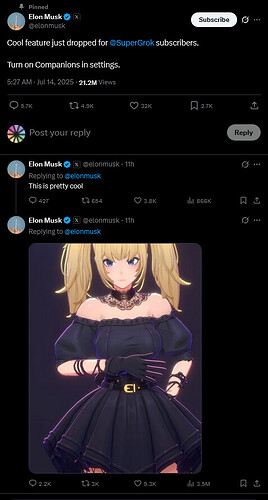I’ve always believed that generative AI output and training is fundamentally transformative, so it was pleasantly surprising to see two judges arrive at that same conclusion in the Meta and Anthropic cases. Still both rulings raise important issues worth digging into. One is the questionable use of copyrighted material from pirated sources. The other is how courts interpret market displacement as part of the fair use analysis.
It goes without saying, AI companies shouldn’t take copyrighted works from pirate sites. Like, you’re a billion or trillion dollars worth so you can afford to either buy the books digitally or buy second hand copies or even do licensing deals.
That said, the strongest argument against AI, I believe, is around market harm and displacement. AI can create content that may flood certain genres and decrease authors’ income. The judges split on this point.
The Anthropic judge, William Alsup, was unconvinced about market harm, saying:
Authors’ complaint is no different than it would be if they complained that training schoolchildren to write well would result in an explosion of competing works
(JDSupra)
He noted that copyright law wasn’t meant to block authors from competition.
Meta judge, Vince Chhabria, did think the potential for market substitution exists, particularly for niche genres like romance or spy novels (Dr Jim). I think the judge was very much concerned about up and coming writers who might be discouraged due to a flood of AI generated content that competes with them.
To me, this concern about market effects does have merit. It’s clear that LLMs rely on large datasets, including copyrighted content, to write coherent and long prose. For the Meta judge, the fact that the models used copyrighted materials to make them better and the potential that these models will turn around to compete with the very authors who helped improve these models is concerning.
Crucially, even for Chhabria, market harm has to be proved. It’s not enough for authors to claim harm and expect the courts to accept that. They need to provide evidence.
And that’s where the authors’ cases become tricky. These are famous writers. Fans aren’t likely to switch to AI-generated fiction. Even Chhabria pointed out that a book like Catcher in the Rye isn’t likely to lose market value because of AI.
Maybe indie authors stand a better chance of proving harm. I doubt it. Most indie authors don’t make a living off their writing. If you’re making close to nothing, how do you show market loss? There could be mid-range authors who do make enough to get by but aren’t household names, they are up and coming authors. But again, this would require actual data to prove consumers are choosing AI content over human-written work.
Many will point to Amazon being flooded with AI content. But how many people actually choose AI over humans.
Even if the AI content was free, it means little if no one is reading it. “AI slop” arguments ironically weakens the argument that AI is replacing good authors.
Lastly, both sets of plaintiffs argued harm due to being deprived of potential money from licensing fees had they chosen to work with the AI companies and allow their works into the training data. The judges rejected this line of argument.
Just because an author owns a copyright doesn’t mean they are entitled to licensing fees or every possible market that could exist using their work. Especially since Meta and Anthropic did not create one to one copies of the authors books/works nor thinly veiled knockoffs that could be argued to be infringing on their products.
In other ongoing cases, I have some predictions.
If I was a betting guy, I’d bet in the New York Times v OpenAI, that OpenAI is likely to get a favourable ruling. Nothing is guaranteed of course. I get New York Times wants AI companies to pay some kind of licensing agreement for scraping their website. Then again, just because you’re a copyright holder of something doesn’t mean you’re entitled to all possible markets that arise from your work. Unless the Times can show that ChatGPT is producing word for word copies of their articles or that readers are actively choosing ChatGPT articles over NYT subscriptions, I doubt they’ll succeed.
The Times in its court paper has evidence that ChatGPT is copying verbatim from its articles. But OpenAI disputes this, saying NYT hired someone to hack GPT and even then “It took them tens of thousands of attempts to generate the highly anomalous results”.
Whose telling the truth? Only time will tell.
Then there is Midjourney v Disney. Thoughts and prayers to Midjourney, I wonder what their legal defence is going to be. I’d bet Disney wins here. When Midjourney can block gore or NSFW pictures from being generated but allows copyrighted material to be produced like Darth Vader… then I doubt courts will look kindly at such conduct.
I expect appeals anyway from these decisions. At least for now Meta and Anthropic should be popping champagne at their victory.

